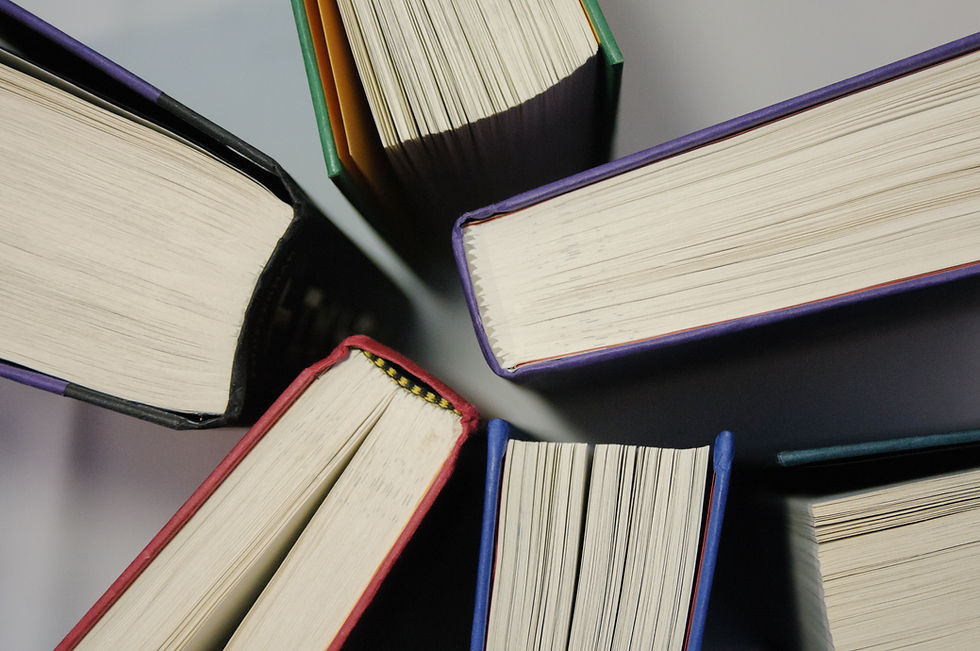Why I Read Banned Books
- Kara C White
- Oct 4, 2023
- 4 min read
(and Why You Should, Too)
We're right in the middle of Banned Books Week (Oct. 1st- 7th), an annual celebration not of actually banning books, but of the freedom to read.

For book lovers, picking new titles and discovering new authors is an important and appealing part of their reading lives. We choose books we hope will entertain us, inspire us, teach us new things!
Now imagine you were limited to reading only the books selected for you, or you could only pick books from a list of titles approved by someone else-- someone you don't even know. Reading time might not be so fun, inspiring, or educational anymore. That's the chilling effect of censorship.
The National Coalition Against Censorship says censorship happens when some people succeed in imposing their political views or moral values on others by suppressing words, images, or ideas they find offensive. Now just expressing your dislike or even disgust about a book is not censorship. That’s having an opinion. It’s what someone does next that can be considered an attempt at censorship. When someone takes action with the intent to remove or restrict access to a book which would otherwise be available to others in a library or school, they've fallen into the more troubling trap of censorship.
And it's happening more and more in libraries and schools all across the United States.
The American Library Association's Office of Intellectual Freedom documented more than 1200 separate demands to censor library books and resources in 2022, the highest number of attempted book bans since ALA began compiling data about censorship in libraries more than 20 years ago. That unparalleled number of reported book challenges in 2022 nearly doubles the book challenges reported in 2021-- and that was also a record breaking year.
And if you’re wondering how things are going this year… the preliminary data shows a continued uptick in attempts to censor books, materials, and services, meaning 2023 may also be a record breaking year.
Of the titles that were challenged, the vast majority were written by or about members of the LGBTQIA+ community or by and about Black people, Indigenous people, and people of color.

"But What About the Children?!" Yes, some books written for children or young adults have been challenged by people who earnestly want to protect kids from content they deem offensive or not age appropriate. While the desire to protect children may seem harmless or helpful, taking action to restrict the books available to children or young people is still a form of censorship. When it comes to children and access to library resources, the American Library Association’s policy is that “librarians and governing bodies should maintain that parents—and only parents—have the right and the responsibility to restrict the access of their children—and only their children—to library resources.”
In other words, I have a say in what books my children read, but not the books your children read. And that's how it should be. If you don't want to read a book, don't read it. But if you do want to read it, no one else should be able to stop you because they don't like what you'll find in the pages.
So why do I read banned books? Because I can! Freedom to read is important to me, whether I want to page through a summer beach read, dive into a classic work of literature, tackle a provocative non-fiction release, or share a children's book as a read aloud with my family. If a book has been challenged, I know that someone wants to substitute their judgement about a book for my own, and I believe in making my own decisions. A "controversial" book may introduce me to new ideas I hadn't considered before. Even if I ultimately dislike a book or am even offended by it, I can still learn from it. Reading banned books lets me examine both the books and my own thinking.

Picking a book that matches your own or your family's reading preferences and values is just being an active, informed reader. So let's be active and informed readers. Take a look at this list of the Top 100 Most Banned and Challenged Books: 2010-2019. Some of the titles will likely be familiar to you. Some may not. Look a few of them up. Read them. Share them with your family if you're so inclined. You might love them. You might not. That's OK. The important thing is that you had access to those books and could judge them for yourself. That's the freedom to read.
Have you read any challenged or banned books? What did you think of them? Feel free to tell me in the comments. Best wishes for further (banned book) reading!
I'm so grateful to all of my new readers! If you'd like updates whenever I post something new, use the Log In/Sign Up button at the top of the page to receive email alerts. I'd also be grateful if you'd share my posts on your social media platforms. Thank you!

Commentaires